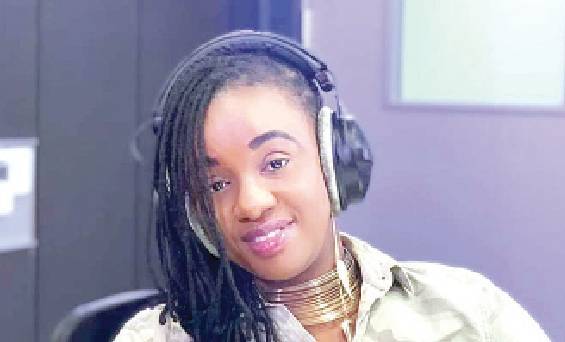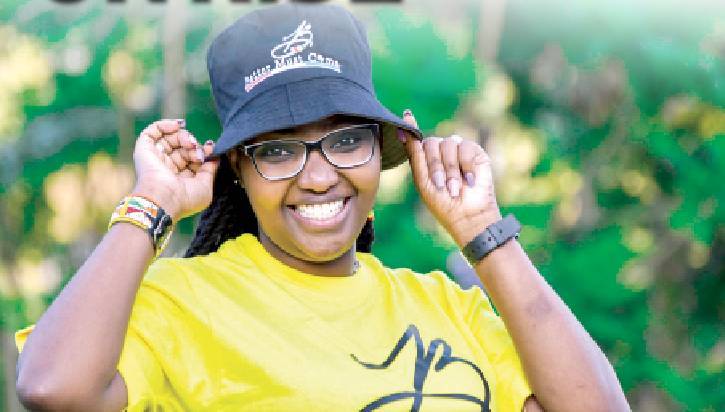Female reggae deejays unapologetically rising to the top
By Jasmine.Atieno, February 18, 2022Years ago, deejaying was not a viable career. However, a lot has changed in this sphere, with a new crop of bold women jumping into the deep waters to swim with the veterans. And as Jasmine Atieno writes, more and more female DJs are preferring reggae as their go-to genre.
Two decades ago, women had jobs set aside for them as they were deemed feminine. This was from the belief that there were things they could do, while they dared not to even dream about some career choices.
Deejaying was one of those. Even for the men, it was not easy to pursue the art without their parents scrutinising it. But well!
The year is 2022 and we’ve never seen such an emergence of female deejays unapologetically taking up their rightful spaces in this field.
Within the reggae circles, the pacesetters have dived in and are winning the airwaves every other day. But they say it has been quite a journey, building the present and the future of the decks lady.
No easy road
DJ Shaqx has been in the deejaying industry for 18 years now. When she started out, Shaqx was playing all ranges of music including soul, old school hip-hop and rhumba.
It’s now 10 years since she decided to specifically focus on reggae. And since the onset, she has worked with some of the biggest sounds in the country including Fire House (now Rastyle) and Dotty Family. She is currently the team leader at StreetYard Sounds.
“Being a female deejay is not easy; you have to fight for your position. There are no favours and you have to fight fairly against the males who dominate these positions.
As a woman, you will sometimes be forced to take a pause on matters marriage, children and such. When I started, of course people looked down on me, easily challenged me like I wasn’t able to do it.
Eventually, those who believed in me gave me the opportunity and the fans started to accept me. The future is bright for female deejays.
I know a lot of women are forced to give up along the way due to intimidations. So, if you are a woman thinking about joining the industry, be ready to endure this, but remember to put God first in all you do, be honest in your dealings, work hard, be disciplined and self-respect is key,” shares DJ Shaqx.

Ebony Selekta is one of the best reggae DJs around with over 10 years experience.
As a pioneering mix queen, she might not have had any female idols in Kenya, but she’s a pacesetter for many young female and male deejays alike.
“For me, deejaying came naturally; I loved music, but couldn’t sing or play instruments and as such, it was deejaying that stole my heart.
I was pulled into the industry by a close friend at Black Supremacy Sounds where the interest grew and I started learning. I did not go to any deejaying academy, most of it is self-taught.
And since then, I have worked with many reggae units sounds including Dotty family and Black Supremacy,” she tells Spice.
Honing my skills
She adds that once she perfected her skills, she never had to go out asking for work because her brand brought the work home.
“Once you build a name and you perfect the craft, work will come. When I started out, nobody took me seriously.
Some people would make inappropriate advances in exchange for work, but I had to have standards and ethics. The intimidation was real.
I recall one time I was deejaying at an event and a random man came to the stage, removed my headphones and started talking some crazy stuff at me. He did not believe that I was the DJ. The bouncers had to come to my aid.
This is an experience that I will never forget. But things have changed today. In fact, during those days deejaying wasn’t taken as a serious job even for men.
“Today it is a viable career just like any other, although there are people who do it for the hype and they ruin it for those who are serious about it.
Young female DJs and those considering joining in, work on your skills first; if you perfect your craft, you’ll always get gigs.
It is such a beautiful time for female DJs to become anything they want, not limited to deejaying,” says Ebony.
Selectress Fyah Betty has been on the decks since April 2013, and in the reggae sphere for about eight years.
She had no plans of being a reggae deejay when she came out of the academy, but her first job was in a reggae sound, which she aced.
She has since worked with some of the biggest sounds in the country including King Lion and Dotty Family. “Being a woman, people always doubt you can do it.
When you go looking for gigs, they scan you up carefully and with doubts, but once you prove that they underestimated you, the trust starts to build.
The other challenge is sometimes people want ‘something extra’ in order to give you a job. It was intimidating when I was new in the game, but nowadays I just laugh and walk out.
“Some people also just refuse to pay up after work. But I am happy to see that people are waking up. If you are a young woman wanting to venture into deejaying, just know that every day is a fight, but you have to face it.
You can brand yourself and fight for your space; you don’t have to be under someone if it’s hard working with them.
Up your game, be a brand, have a good network, and once you are a household name, you will not go out of style,” shares Betty.
Having been in the industry for more than eight years now, Lady Val is another female reggae DJ that has proved women can do it too. Before majoring as a reggae DJ, she was playing all genres.

She says, “I’ve loved music since I was in primary school.
My late dad inspired me since he was a musician; this is why I gravitated towards deejaying, which is all self-taught and of course learning from some of the best in the game.
When I started though, it was hard. I would be looked down upon, underpaid, and some male DJs started to feel challenged. I did not mind so much about the pay, as sometimes I would even work without pay.
At times, people would never attend our shows, but I would still show up. With more women in the industry now, the growth is good, but so is the rivalry.
There is not a lot of togetherness amongst us. But I do believe there is space for more women DJs right now and in the future, but it will take respect, patience and discipline,” intimates Val.
Deejay Jema also owns one of the best cloth line brand ‘Better Must Come’. The music, she says, played a great role in marketing her business and this is one of her favourite things about being a reggae DJ at the moment.
“As a female DJ, I have been in the industry for five years, and a lover of reggae music from way back. Getting into deejaying itself was tough.
As a woman, people felt that I wanted to take up a career that is not for women. It is easier for men to do a lot of jobs, but when a lady wants to spread her wings, she gets judged. But I was unstoppable. I wanted to be a game changer,” she says.
Friendly workspaces
The first time Selectress Paddy won the crowds over was in December 2016 during an end year Sound Clash concert held in Thika.
She had just started working with One Calling Sounds. After that she moved to Nairobi and joined Sanachie Sounds and together with Stitchie Steven, currently of Roots Radio, they started the Wadada Pamoja Movement.
Wadada Pamoja has worked to provide equal opportunities and platforms for the women in reggae music. In 2017 though, she stepped down from the music to prioritise on her family and business, with deejaying on the side, but she made a full come back just recently. Being in the deejaying industry, she shares, is not easy for women.
“There are many challenges, including being undercut. Some people are always trying to take advantage of you and you need to have principles to do business.
You have to be strong, and most club managers are men and can use this against you. Importantly, you have to have the passion for it, otherwise you won’t deliver.
You have to give the crowd what they want; you are the entertainer,” she says, singling out fellow female DJs such as Shiqx, Deejay Heartical, and Elton, and female artistes including Salma Queen and Binti Afrika.
